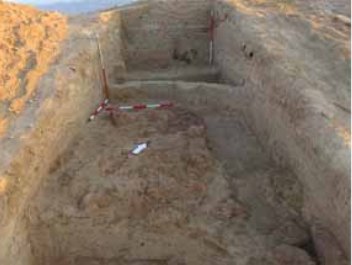Manjag Hill 2 is located one km from Robat Qara Bil village in the rural district of Golestan in the city of Garmeh.
The Public Relations Office of the Research Institute of Cultural Heritage and Tourism (RICHT) quoted head of the archeological team Reza Nasseri Monday as saying that the hill is one of the ancient locations of North Khorasan wherein works of the Copper-Stone period up to the Bronze era could be surveyed.
As regard the location of the hill in the western end of the Atrak River valley and its proximity to Gorgan Plain, in this area a broad study could be conducted of the influence of the pre-historic culture in the Gorgan Plain with more eastern regions in the plateau, he said.
He pointed to determination of the limit and proposal on the privacy of the area, relative and absolute chronology of the area, survey of regional and trans-regional interactions of Manjaq Hill 2 during the settlement period and identification of the diet and nutrition pattern of the inhabitants as the most important targets of the exploration operation.
Nasseri said the vegetation and animal species, survey of the works and evidence of trade and cultural exchanges which relies on archeological findings resulted by the exploration, identification of the application of the area in the settlement period, recognition of economic and social developments in the settlement period are among other objectives of the plan.
Referring to the process of formation of the plan with an aim of identifying the limit of the area and making 15 probe holes with the size of 1x1 meter around the hill for exploration, he reiterated that in order to identify the sequence of settlement a step-like trench was made in the southern side as a result of two new phases clay backing furnaces and from the older phases the architecture with adobe and clay walls were found.
9376**2050

Tehran, Aug 7, IRNA -- The discovery of pottery baking furnaces, ash and coal accumulation in Manjaq, North Khorasan province Hill 2 indicates that the site had been a workshop-industrial zone in the Bronze age for the production of grey pottery.

